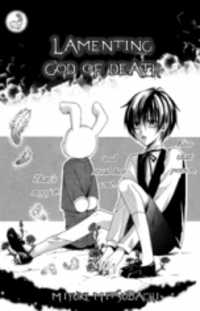
I Dated the Lost Song
by Viola Grace
Cadence is hired as a surrogate, and Leska is her emotional support human. The moment that Cadence meets the male she is carrying for, she seeks harmony, and Leska is stuck as an omega with no alphas in sight. That is when everything changes.
Cadence gets a request from the Blind Date Corp to take on the position of surrogate. It seems her body is ideal for carrying a child for a hero who hasn’t been seen in years. She signs the contract, submits to the poking and prodding, and when the DNA tells its tale, she confronts the fact that her long-lost-sister has a job at Z-Corp. Arcady ran away at seventeen and never gave a thought to the eleven-year-old Cadence that was left behind as an early activator in a family that hated actives.
Cadence is brought to a lovely home outside the city, where she can breathe free without the constant pressure of other people’s energy. She meets her trainer and tries to focus on her new quiet life. It’s too quiet.
Leska works for Z-Corp in accounting. She pushes numbers and checks estimates all day long. When Cadence’s baby daddy decides she needs a companion, he calls Leska, and she moves into the guesthouse.
Leska has some acrobatic hobbies, and the equipment was part of her contract. It is set up at a friendly neighbour’s estate, and the baby daddy learns that she’s an omega. He immediately sets out to find her some protective alphas, and then things spin out of Leska’s control.
.
Read
I Dated the Lost Song on http://kissnovel.net
Martial Peak Reviews
Viola Grace's I Dated the Lost Song is a captivating exploration of identity, belonging, and the intricate dynamics of surrogate motherhood set against a backdrop of futuristic societal norms. The novel weaves a complex narrative that delves into the lives of Cadence and Leska, two women navigating the challenges of their unique circumstances. Grace's storytelling is both engaging and thought-provoking, offering readers a glimpse into a world where personal connections and societal roles are constantly evolving.
At the heart of the novel is Cadence, a character whose journey is both poignant and empowering. Hired as a surrogate for a hero who has been absent from the public eye for years, Cadence's story is one of self-discovery and resilience. Her initial acceptance of the surrogate role seems straightforward, but as the narrative unfolds, it becomes clear that her journey is anything but simple. The revelation of her long-lost sister, Arcady, working at Z-Corp adds a layer of familial tension and unresolved emotions that enrich the plot. Grace skillfully uses Cadence's character to explore themes of familial estrangement and the longing for connection, making her a relatable and sympathetic protagonist.
Leska, on the other hand, provides a contrasting perspective. As Cadence's emotional support human, her role initially appears secondary, yet her character development is equally compelling. Working in accounting at Z-Corp, Leska's life takes an unexpected turn when she is thrust into the role of Cadence's companion. Her status as an omega in a world where alphas are scarce adds an intriguing dynamic to the story. Grace uses Leska's character to delve into themes of identity and societal expectations, highlighting the challenges faced by individuals who do not conform to traditional roles. Leska's acrobatic hobbies and her subsequent interactions with the baby daddy further complicate her narrative, leading to unexpected developments that keep the reader engaged.
The novel's exploration of surrogate motherhood is both nuanced and insightful. Grace delves into the emotional and ethical complexities of surrogacy, examining the impact on both the surrogate and the intended parents. Cadence's journey is marked by moments of introspection and self-doubt, as she grapples with the implications of carrying a child for someone else. The author does not shy away from exploring the emotional toll of surrogacy, offering a realistic portrayal of the challenges faced by those involved in such arrangements.
One of the novel's strengths is its ability to balance the personal and the societal. Grace creates a world where societal norms and expectations are constantly shifting, and her characters must navigate these changes while staying true to themselves. The inclusion of the Blind Date Corp and Z-Corp adds a layer of intrigue and complexity to the narrative, highlighting the ways in which corporate interests intersect with personal lives. The novel raises important questions about autonomy and agency, encouraging readers to reflect on the ways in which societal structures impact individual choices.
Grace's writing is both evocative and accessible, drawing readers into the world she has created. Her attention to detail and ability to craft vivid, relatable characters make I Dated the Lost Song a compelling read. The novel's pacing is well-executed, with moments of tension and introspection balanced by lighter, more humorous scenes. This balance ensures that the story remains engaging from start to finish, with each chapter offering new insights and developments.
In comparison to other works in the genre, I Dated the Lost Song stands out for its focus on character development and emotional depth. While other authors may prioritize action or world-building, Grace's strength lies in her ability to create complex, multi-dimensional characters who resonate with readers. Her exploration of themes such as identity, belonging, and societal expectations is both timely and relevant, offering a fresh perspective on familiar tropes.
Overall, I Dated the Lost Song is a thought-provoking and engaging novel that will appeal to readers who enjoy character-driven stories with a touch of speculative fiction. Viola Grace has crafted a narrative that is both entertaining and insightful, offering a unique take on the complexities of modern relationships and societal roles. Whether you are a fan of the genre or new to Grace's work, this novel is sure to leave a lasting impression.








![The Maxed-out Player [Official]](/upload/pic/manga/the-maxed-out-player--official-.jpg)















Reviews 0
Post a Reviews: